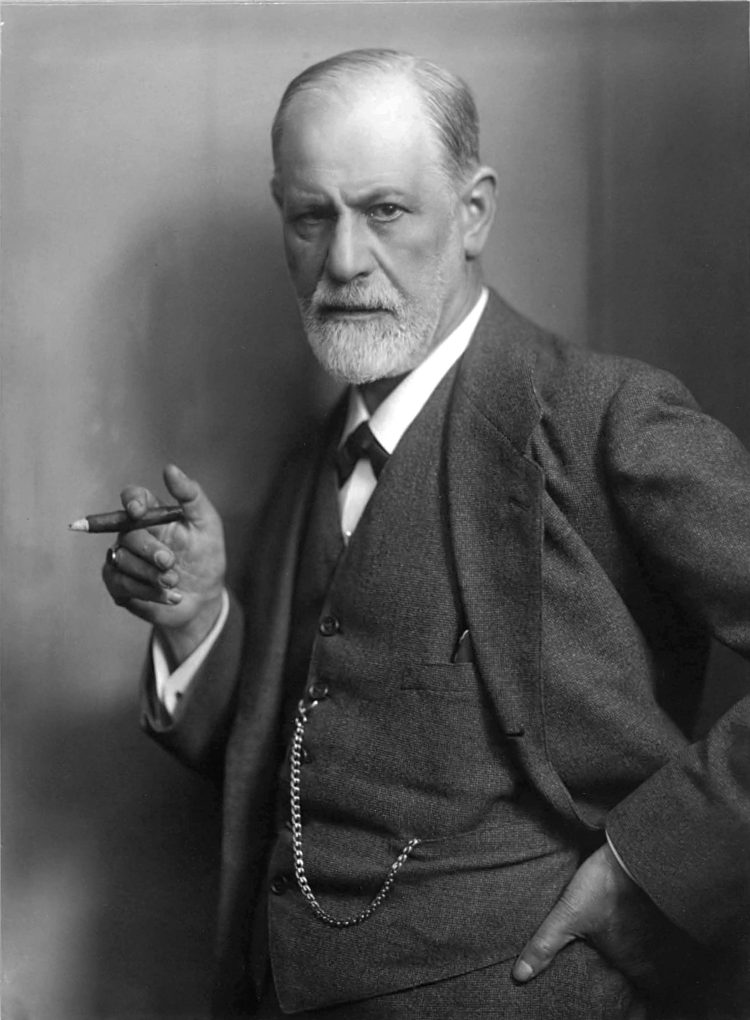Welcome to the ultimate showdown between two titans of the mind: Behavioral Psychology vs. Cognitive Psychology. In one corner, we have the behaviorists, who believe that our actions are mere responses to external stimuli. And in the other corner, we have the cognitivists, who argue that our thoughts and perceptions shape our behavior. It’s time to dive deep into the murky waters of the mind and see which side comes out on top. Let the battle of the brainiacs begin!
Understanding Behaviorism: The Foundation of Behavioral Psychology
So you think you understand behaviorism, huh? Well, let me tell you, it’s more than just a fancy word to throw around at cocktail parties. This is the foundation of behavioral psychology, my friend. Let’s break it down for you in terms even Pavlov’s dog could understand.
Picture this: you’re a rat in a maze, just trying to find your way to that sweet, sweet cheese at the end. Your every move is being watched and analyzed by some sneaky scientist in a lab coat. That’s behaviorism in a nutshell. It’s all about studying how we react to stimuli and the consequences that follow.
Now, let’s talk about reinforcement. No, not the kind that holds up your sagging porch. We’re talking about positive and negative reinforcement, baby. Positive reinforcement is like getting a gold star for finishing your homework on time. Negative reinforcement is more like taking away your phone until you finish your chores. It’s all about shaping behavior through consequences.
And don’t even get me started on punishment. It’s like the dark side of behaviorism. From time-outs to shock collars, punishment is a way to decrease undesirable behavior. But hey, sometimes you gotta crack a few eggs to make an omelette, am I right?

The Role of Environment in Behavioral Psychology
Have you ever wondered why you have the sudden urge to dance the Macarena every time you hear the song? Well, it’s all thanks to the environment! is more influential than you may think. Here are some ways the environment shapes our behavior:
- **Classical Conditioning:** Remember Pavlov’s dogs? They were trained to salivate at the sound of a bell. Just like those pups, we too are conditioned by our environment. Whether it’s the smell of freshly baked cookies or the sight of your favorite TV show, our behaviors are shaped by the things around us.
- **Operant Conditioning:** Think of this as a reward system for your behavior. Just like training a puppy, our environment rewards certain behaviors and punishes others. Whether it’s hitting the snooze button one too many times or getting a raise at work, our environment plays a big role in shaping our actions.
- **Observational Learning:** Ever notice how you start talking like your best friend or picking up their habits? That’s because we learn by observing those around us. From the way we dress to the way we eat, our environment heavily influences our behavior through observation.
So next time you find yourself doing something out of the ordinary, blame it on the environment! After all, your surroundings have a bigger impact on your behavior than you may think.

Cognitive Processes: The Focus of Cognitive Psychology
So, picture this: you’re sitting there, trying to wrap your mind around why you always forget where you put your keys. Well, that’s where cognitive psychology comes in! This field focuses on understanding how the human mind works through cognitive processes. And let me tell you, it’s a wild ride!
One of the key players in cognitive psychology is memory. **Memory** plays tricks on us all the time, whether it’s forgetting where you parked your car or blanking on your neighbor’s name for the millionth time. Our brains are like sneaky little ninjas, constantly reshuffling information and playing games with our recall abilities.
But wait, there’s more! **Problem-solving** is another favorite topic in cognitive psychology. Have you ever tried to solve a puzzle and felt like your brain was going to explode? Yeah, that’s problem-solving at work. Our minds are like little detectives, scanning for clues and connections to crack the code.
And let’s not forget about **attention**! Ever zone out in the middle of a conversation and suddenly realize you have no idea what the other person is talking about? That’s attention for you – always playing hide and seek with our focus. Cognitive psychology dives deep into how we pay attention, shift focus, and sometimes just completely space out.

Analyzing Thought Patterns in Cognitive Psychology
Have you ever wondered why you always reach for the cookie jar when you’re stressed? Or why you subconsciously avoid doing laundry until it becomes a Mount Everest-sized pile? Well, in the world of cognitive psychology, these are just a few examples of thought patterns that can be analyzed and decoded.
One interesting thought pattern that cognitive psychologists love to explore is confirmation bias. This is when we seek out information that confirms our existing beliefs, while ignoring or dismissing anything that contradicts them. It’s like wearing blinders, but instead of being on a horse, you’re just stubbornly walking through life with a limited perspective.
Another fascinating concept is cognitive dissonance, which is the discomfort we feel when our beliefs and actions are in conflict. It’s like trying to simultaneously believe that pizza is both healthy and delicious – your brain just can’t handle the cognitive dissonance. So, you either convince yourself that pizza is a superfood or you start trying to convince yourself that it’s actually gross (good luck with that).
And let’s not forget about the availability heuristic, where we rely on the information that comes to mind most easily when making decisions. This is why we’re more likely to believe that plane crashes are more common than car accidents, even though statistically speaking, car accidents are far more frequent. Our brains are just lazy like that, always going for the low-hanging fruit of information.

Comparing and Contrasting Behavioral and Cognitive Approaches
So, you’re probably wondering what the deal is with these behavioral and cognitive approaches, right? Let me break it down for you in a way that even your pet goldfish could understand.
First up, we have the behavioral approach. This is all about actions, baby! Think Pavlov’s dogs drooling at the sound of a bell or Skinner’s pigeons pecking at buttons. It’s all about what you can see and measure – no room for fluffy thoughts or feelings here!
Now, onto the cognitive approach. This one’s all about what’s going on inside that noggin of yours. We’re talking thoughts, beliefs, and all that jazz. It’s like a never-ending episode of Jeopardy in there, with your brain constantly working on solving problems and making decisions.
So, in a nutshell, behavioral is all about what you do, while cognitive is all about what you think. It’s like the ultimate showdown between action and thought – think of it as the eternal battle between Batman and Superman, but with less capes and more psychology textbooks.
The Influence of Technology on Psychological Research
Technology has revolutionized the way psychological research is conducted, making it easier, faster, and more accurate. Gone are the days of just pen and paper, researchers now have a plethora of tools at their disposal to gather data and analyze results.
One of the most significant advancements in technology for psychological research is the use of virtual reality. Researchers can now create immersive environments to study behavior and cognitive processes in a way that was never before possible. This opens up a whole new world of possibilities for studying issues such as phobias, PTSD, and even social interactions.
Furthermore, the use of big data and machine learning has allowed researchers to analyze massive amounts of information quickly and efficiently. This has enabled the identification of patterns and trends that were previously impossible to detect. Researchers can now crunch numbers and analyze data with the click of a button, saving them countless hours of manual labor.
Overall, is undeniable. From virtual reality to big data, technology has pushed the boundaries of what is possible in the field. Who knows what the future holds for the marriage of psychology and technology?
Applications of Behavioral and Cognitive Psychology in Therapy
So you’re feeling down in the dumps and your therapist starts throwing around terms like “behavioral” and “cognitive” psychology. Fear not, my friend, for these fancy words simply mean that your therapist is using some pretty cool techniques to help you out.
Using behavioral psychology, your therapist may help you identify negative behaviors and patterns that are holding you back. Together, you’ll work on changing these behaviors and replacing them with healthier ones. Think of it like Marie Kondo-ing your mind – out with the old, in with the new!
On the other hand, cognitive psychology focuses on your thoughts and how they influence your feelings and behaviors. Your therapist may help you challenge negative thought patterns and replace them with more positive and realistic ones. It’s like replacing your old flip phone with the latest iPhone - a total game-changer!
By combining these approaches, therapists can help you tackle a wide range of issues, from anxiety and depression to phobias and stress. So the next time you’re feeling overwhelmed, just remember that behavioral and cognitive psychology are here to save the day!
FAQs
What’s the main difference between behavioral and cognitive psychology?
Well, think of it this way – behavioral psychology focuses on observable behaviors, like a dog drooling at the sight of food. While cognitive psychology is all about what’s going on upstairs in your noggin, like how your brain processes and remembers that delicious meal.
Can you give an example of how behavioral psychology is used in everyday life?
Sure thing! Ever noticed how you automatically reach for a snack when you see a commercial for your favorite treat? That’s classic conditioning at work, my friend!
How does cognitive psychology play a role in problem-solving?
Imagine you’re trying to figure out a tricky puzzle – cognitive psychology helps you break it down into smaller steps, use your memory to recall similar patterns, and problem-solve like a boss!
Which approach is more effective in changing behavior – behavioral or cognitive psychology?
Well, it depends on the situation! If you’re trying to kick a bad habit, like biting your nails, behavioral techniques might be more helpful. But if you’re looking to understand why you keep biting your nails in the first place, cognitive psychology is the way to go!
—
In Conclusion…
And there you have it! The battle between behavioral and cognitive psychology continues to rage on, with each side believing they hold the key to unlocking the mysteries of the mind. But hey, why choose one when you can enjoy the best of both worlds? After all, who says you can’t train your brain while enjoying a little positive reinforcement along the way? So go forth, dear reader, and explore the depths of your mind with both behavioral and cognitive psychology. Who knows what secrets you may uncover!






